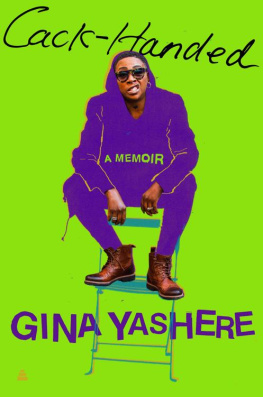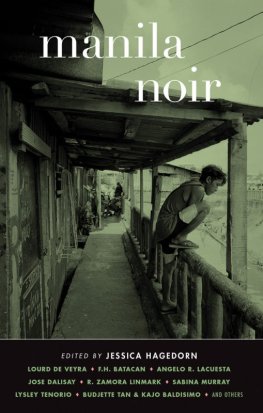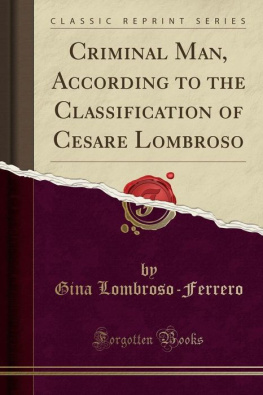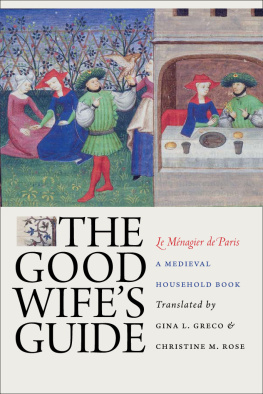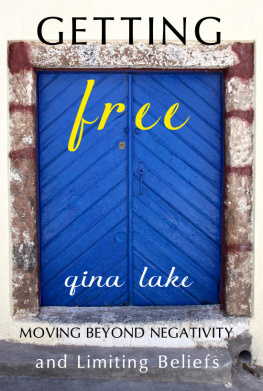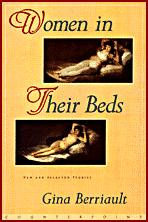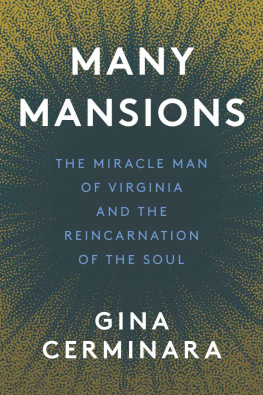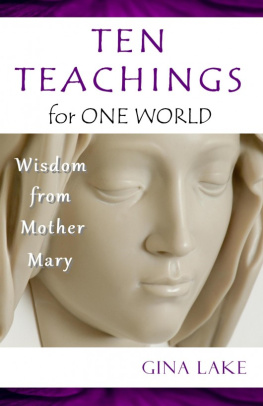To my mum. Who else. This book is about me, but really about her.
The moment anyone tries to demean or degrade you in any way, you have to know how great you are. Nobody would bother to beat you down if you were not a threat.
CICELY TYSON
When I was a kid, my mum would speak in proverbs. She had one for every occasion without fail. EVERY. SINGLE. OCCASION. A proverb was used to make a point, prove a point, illustrate a point, and sometimes didnt seem to have a point, but Mum always had one ready to whip out like a Nigerian gunslinger. I could have sworn she made some of them up! Having grown up and discussed at length with other children of Africans, it seems that my siblings and I were not alone, and African parents all over the globe were bombarding their kids with these sayings. Looking back and deciphering these proverbs, there are some wise ones, some hilarious ones, and straight-up crazy ones. As an ode to all those African parents, each chapter of the book is headed by some of mine and my mums favorites.
The definition of cack-handed is left-handed, which I am, and also clumsy and awkward, which I am. It also represents the unconventional track my life and career have taken.
This is a book about following your dreams.
Its not one of those self-help ladi-dadi, anything is possible if you just believe, and eat nothing but almonds and kaletype books.
This is a book about wanting something and going for it, despite how ridiculous, impossible, and stupid it sounds to other people.
This book is about trying. Whether you succeed or not.
You can judge at the end of the book whether or not you think Ive succeeded, but you better believe Ive given it a go. (Or given it a shot, for Americans who prefer everything to have a gun reference.)
Enjoy.
Contents
M y grandmother Patience Ebuwa Obaseki died under suspicious circumstances. My mother believes that her fathers other wives finally succeeded in getting rid of her, by poisoning her food. When she died, she had a large mysterious mark on her throat, from either the poison or the injuries sustained during the poisoning.
I dont know much about her, and I never saw her, not even in a picture, but my mother tells me that she was a lively and humorous character, and when my mother was a little girl in Nigeria, she would entertain my mother with vividly funny stories and made-up songs. My grandmother was the mother of six children and the first of several wives of a wealthy chief and businessman, Samson Okankan Obaseki, in Benin City, in southern Nigeria. My grandfather was a member of a family that had links to the ruling echelons of the Benin Empire.
Polygamy was widely practiced in Nigeria before British Christian missionaries came along and told them that the shit was barbaric and sinful. It didnt dawn on or even seem to matter to the missionaries that polygamy was about survivalmore wives meant more on your team! The wealthier a man was, the bigger the compound he could own and the more wives he could take care of. Many wives meant many children, and in Nigeria, having many children is highly respected and greatly envied. Kind of like in the US, where the bigger the garage, the more cars you put in it. My grandfather was the Nigerian Jay Leno. And for many of his wives, depending on how many sons they produced, this also meant more power.
My mother had thirteen brothers and sisters from the other wives of her father, but her mother was the first wife and had produced the most children, which made her the most powerful within the compound among the other wives. It also made her a target.
My grandmother actually gave birth to ten children, but mysteriously, all five boys she birthed died before they were three from mysterious illnesses, and one, even, to a dog attack. This prompted my grandmother to believe that the other, less-favored wives of her husband were practicing juju on her to undermine her standing, by casting spells and killing all her male children, which in Nigerian society, as well as the rest of patriarchy, is the more desired gender. As a result of this, my mother, Grace Nekpen-Nekpen Obasekithe first of the surviving girlshad five younger sisters born from her mother but no living brothers.
Despite my grandmothers lack of living male children, my grandfather still adored his first wife and their girl children, and my mother was his favorite. My mother showed a keen intelligence from early childhood, and in an era when daughters were often not educated and only groomed for wifedom and motherhood, she was sent to the best private and convent boarding schools, and she traveled with her dad on many of his business trips abroad. My mum thrived in school and her further studies, qualifying as an English teacher by the time she was twenty and becoming an assistant school principal by age twenty-four. Her mother became afraid that she, as the favorite and most accomplished child of her father, would also be a target of the other wives, as had been her sons, so she begged my grandfather to send my mum out of Nigeria, to further her studies in England and get her away from the jealous other wives. Eventually, after my grandmothers death, my distraught grandfather sent Mum to London and told her never to return.
You may not have heard of the Kingdom of Beninnot to be confused with the country Benin. However, if youve ever been to a museum anywhere in the world and seen any cool as hell Edo bronze sculptures and masks, then you have. To cut a long story short, Benin was a powerful forest kingdom within what is now Nigeria. The Edo people of the kingdom were ruled by an oba, whose ultimate power was basically his ability to determine life and death for those within the confines of his multiethnic empire. The area was rich in natural resources, and from the 1400s to the mid-1500s, the Edo traded with the Portuguese, who were the first Europeans to arrive there, and then the Dutch, swapping their rubber, palm oil, pepper, and ivory for copper and brass, which Edo artists cast into various elaborate works of art. Basically, the Kingdom of Benin was the real Wakanda. (If you dont get this reference, then you have been truly living under a Jupiter-size rock.) The kingdom was an extremely advanced society, and Europeans described Benin City as one of the most beautiful and well-planned cities in the world.
Dont believe me? This is from The Guardian:
In 1691, the Portuguese ship captain Lourenco Pinto observed: Great Benin, where the king resides, is larger than Lisbon; all the streets run straight and as far as the eye can see. The houses are large, especially that of the king, which is richly decorated and has fine columns. The city is wealthy and industrious. It is so well governed that theft is unknown and the people live in such security that they have no doors to their houses.
In contrast, London at the same time is described by Bruce Holsinger, professor of English at the University of Virginia, as being a city where thievery, prostitution, murder, bribery and a thriving black market made the medieval city ripe for exploitation by those with a skill for the quick blade or picking a pocket.
Most Westerners assume that it was Europeans who brought civilization to Africa and that Africans should be grateful, but in London, they were still throwing their piss out their windows and having sex in shit-filled alleys while the area now known as Nigeria had a thriving, advanced social network. This is true of many other civilizations throughout Africa and the world before European contact.
The Edo, also called the Bini, are originally from what is now known as southern Nigeria. Benin City was the center of the Kingdom of Benin, which had its heyday from the fourteenth to the seventeenth centuries. Their territory is west of the Niger River and extends from the northern hills down to the swamps of the Niger Delta. The Edo people were very advanced and controlled most of the trade happening in this area. The Brits wanted a piece of this action, but the oba put certain restrictions on what the Edo were or were not allowed to trade. The Brits wanted to just take all the Edo peoples shit, using Benins wealth and resources to expand and enrich the British Empire. They tried to do a sneaky invasion of Benin in 1896, but they had their asses handed to them by the Edo warriors. The Brits got their revenge a year later, returning to Benin with a huge army to undertake one of their infamous punitive expeditionscapturing the oba, exiling him, and then burning Benin City to the ground. The Brits looted all of the bronze, ivory, and other artifacts, and loaded it up on their warships to take back to London, selling it to British and European museums. The money raised through the sale of these precious goods helped pay for the looting army. Ahhh, the circle of life... A recent

